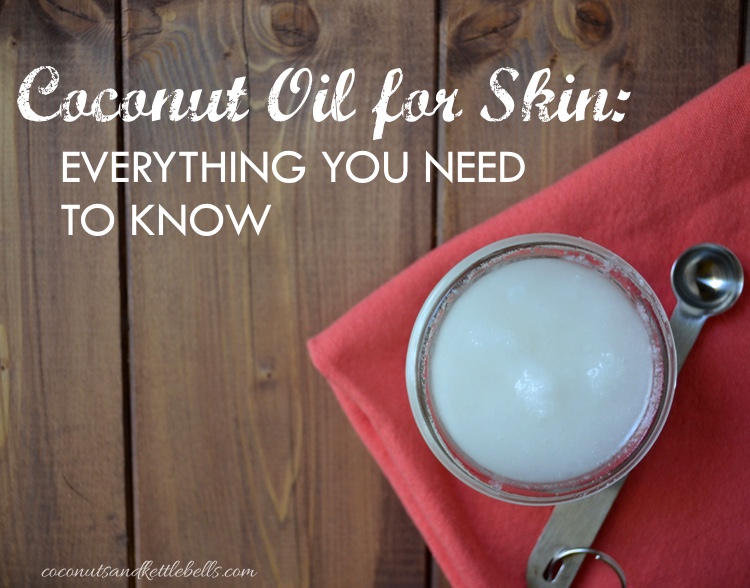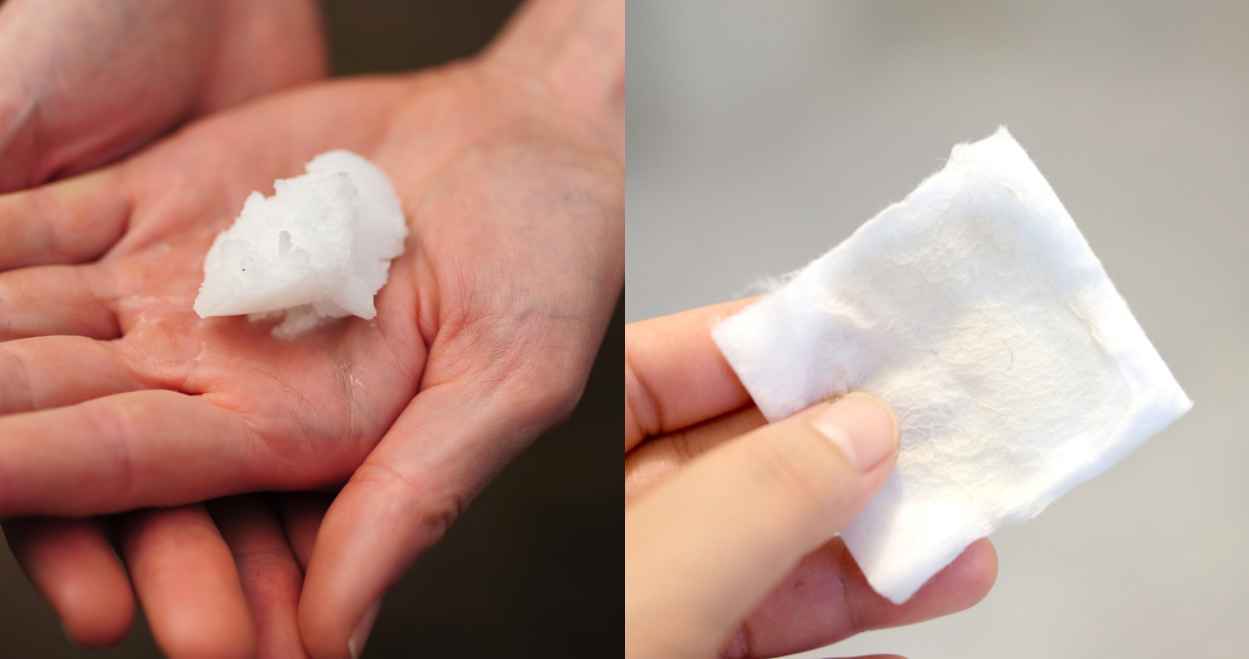With the rising popularity of coconut oil, many people have become interested in how to use coconut oil for skin care. In fact, coconut oil skin and hair care products are popping up just about everywhere, and in many stores – you’ll find jars of coconut oil hanging out alongside bottles of conventional lotion. Unfortunately, because applying coconut oil to skin is a relatively new concept for most people, the whole process can seem confusing, and slightly intimidating. And believe me – oh have I been there. Years ago, I did such a remarkable amount of research on using coconut oil for acne, face washing, and moisturizing that I completely paralyzed myself from trying anything because I didn’t know who to trust, or where to start. So, to save you time and uncertainty, I’ve put together a simple guide that explains everything you need to know about how to use coconut oil for skin care. We’ll talk benefits, different ways to use coconut oil in your skin care routine, and how to know when coconut oil is not right for your skin. To get started, simply press the “easy” button.
Why Use Coconut Oil for Skin Care
Coconut oil is the oil extracted from the edible, fleshy “meat” of a coconut. It’s a natural saturated fat, and is compromised almost entirely of medium-chain fatty acids. While that may not seem like anything extraordinary, coconut oil is one of the only sources of medium-chain fatty acids, which is what makes it so incredibly for skin. Lauric acid, the predominant medium-chain fatty acid found in coconut oil, has proven antibacterial, antiviral, antifungal, and anti-inflammatory benefits. Other chemical substances in coconut oil, including phytonutrients and polyphenols, act as antioxidants, and have other tissue-supportive and tissue-protective properties. Studies show that these beneficial properties not only make coconut oil an incredible moisturizer, it also helps to reduce bacteria associated with acne, infections, and other skin conditions, and can improve wound healing by increasing collagen cross-linking.
But what if I have oily/dry/combination skin?
Even with the literature in favor of using coconut oil for skin health, many people get hung up on the idea of adding oil to their skin – or assume that because they have oily skin, coconut oil skin care practices won’t work for them. But good news… coconut oil works for all skin types. Dry skin occurs when our skin lacks appropriate oil, resulting in rough, dry or flaky skin. Applying a nourishing oil like coconut oil topically helps restore the lipid barrier, which reduces water loss, inhibits peroxidative and oxidative damage, and improves antimicrobial function.[7][8] If your skin overproduces oil, applying nourishing oils helps exfoliate skin because it breaks up and dissolves excess oil without striping the skin of its natural lipid barrier. In fact, while sebum’s association with acne is poorly understood, some research suggests it might have more to do with sebum quality, not quantity.[9][10] This is why practices like cleaning your face with coconut oil or using nourishing oils as a facial moisturizer can work incredibly well for all skin types.











